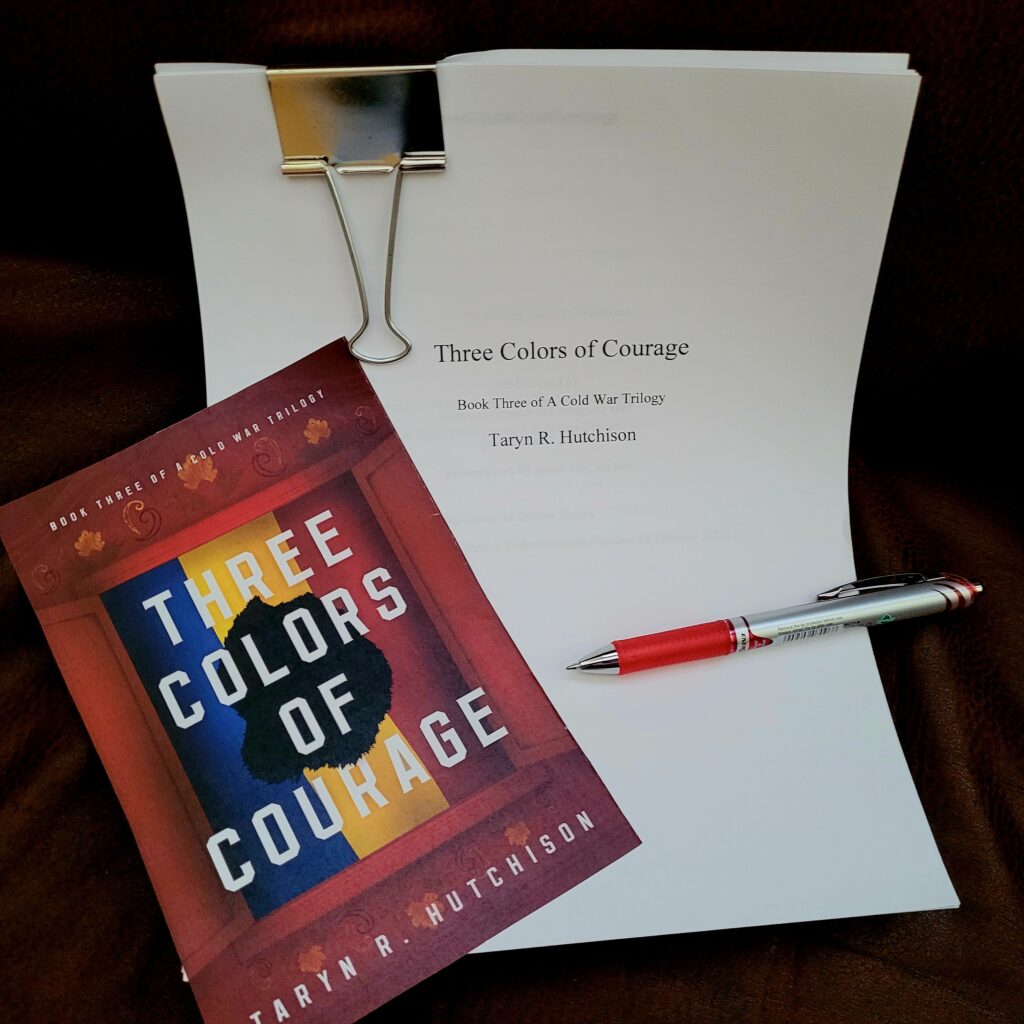
July is half over and I’m not yet half finished with my one huge task for the month: revision. Thinking of this causes me stress. I am revising my third and final novel, Three Colors of Courage. It’s an action-packed conclusion to the series, and it’s so good–really good!–that I can’t wait to get it out into the world. I’ve put a lot of pressure on myself to launch the novel before Christmas. More stress.
Revision is hard work. It takes a lot of unhurried time and it can be emotional. The process can’t be rushed. I’m tweaking my book to make it the best it can be.
Every night, I go to sleep with the story and the characters on my mind. My mind never stops working, trying to puzzle out how to make the changes I need to make. Every detail I alter affects many others.
The process reminds me of working a jigsaw puzzle. In fact, when I get stuck, I like to walk away from my laptop for a break, and work on a puzzle. The puzzle work sets my mind free from consciously being in the world of the novel. Something about using a different part of my brain to solve problems and finding the perfect piece to fit the puzzle together is like magic for me. While I do the puzzle, my subconscious continues working on my novel.
My best ideas come while I’m asleep. (Or when I’m walking.) I try to jot down all my ideas when I first wake up, but this morning I had so many that I was worried I’d forgotten some details.
And then I read this in our devotional, My Utmost for His Highest by Oswald Chambers:
“God is my Father, He loves me, I shall never think of anything He will forget, why should I worry?”
As I took my walk, I kept reciting that sentence over and over in my mind. I will never think of anything He forgets. No need to worry. He’s got it covered!
So what exactly am I doing? Why is revision so difficult? Revision is not proofreading. It’s more than fixing sentence-level issues like grammar, punctuation, and word choice. (That process will happen later.) What I’m doing now is overhauling some of the big-picture issues. Things like story arcs and plot structure, character arcs and motivations, pacing and tension.
I look to famous authors who’ve gone before me for advice. Elmore Leonard makes revision sound easy. He writes, “I leave out the parts that people skip.” I love this! If only it were that simple.
When Ernest Hemingway was asked what stumped him enough that he rewrote the ending to Farewell to Arms thirty-nine times, he answered: “Getting the words right.”
Revising means being willing to commit murder. To scratch out characters, to cut whole scenes or remove entire chapters, or to eliminate or drastically alter sub-plots.
Let me tell you, it’s hard to kill my darling characters. I kind of like them. After all, I created them. As an author, I’m not able to be impartial when it comes to murder. Yet it’s something all authors have to come to grips with. I expect to have my sleep interrupted often these next few weeks by my characters pleading for their lives.
In the late 1800s, Sir Arthur Quiller-Couch first came up with this piece of writing advice that has been quoted by authors ever since: “Murder your darlings.”
Stephen King expanded on the theme: “Kill your darlings, kill your darlings, even when it breaks your egocentric little scribbler’s heart, kill your darlings.”
This month, I am committing murder as I try my best to cut the parts people skip. And I’m confident that I will never think of anything that God forgets.